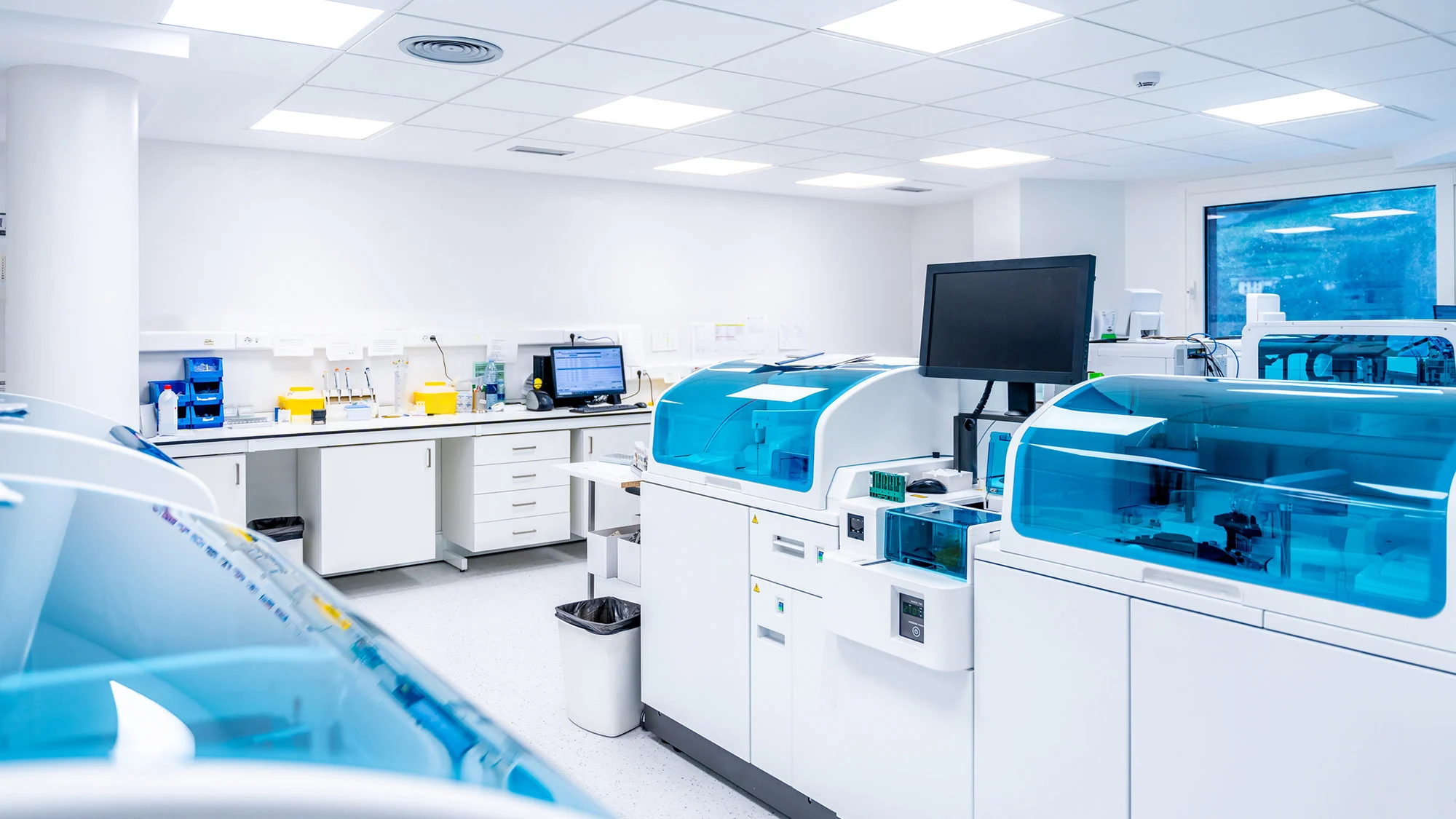Choosing the Right Medical Lab Equipment for Your Facility

Strong 8k brings an ultra-HD IPTV experience to your living room and your pocket.
When it comes to medical laboratories, the accuracy, speed, and reliability of diagnostic results can make a significant difference in patient care. Whether you are setting up a new healthcare facility or upgrading an existing lab, choosing the right medical lab equipment is crucial. The right equipment ensures precise testing, enhances efficiency, and ensures the safety of both patients and medical staff.
In this article, we’ll explore the key considerations you need to make when selecting medical lab equipment for your facility, and highlight the essential tools that should be included in any well-equipped medical laboratory.
1. Understand the Needs of Your Facility
Before making any purchase, it is essential to assess the specific needs of your facility. The type of tests and services you plan to offer will determine the equipment you require. Are you focusing on routine tests, specialized diagnostics, or research? This step involves understanding the patient population you serve and the types of conditions you will most frequently diagnose.
For example, a hospital laboratory might need a broader range of equipment, including advanced imaging systems and high-throughput testing machines. On the other hand, a smaller clinic may only need basic diagnostic tools such as microscopes, centrifuges, and blood analyzers.
2. Consider Your Budget and Long-Term Investment
Medical lab equipment can be expensive, and it’s important to factor in both initial costs and long-term operational costs. This includes maintenance, warranties, and potential upgrades. Choose equipment that offers the best balance between quality and affordability, considering not just the upfront cost but also how the equipment will impact the overall operational budget.
Investing in high-quality, durable equipment can save money in the long term, as it may require fewer repairs and replacements. Additionally, many modern pieces of equipment come with energy-efficient features, which can reduce operating costs.
3. Quality and Reliability of the Equipment
Quality and reliability are crucial factors when choosing medical lab equipment. Poor-quality or unreliable equipment can lead to inaccurate results, delayed diagnoses, and even compromised patient safety. When purchasing lab equipment, always check for certifications and compliance with international standards, such as ISO or FDA approval, which ensure that the equipment meets stringent quality control guidelines.
It’s also wise to research the brand’s reputation and review customer feedback. Reliable equipment will contribute to smooth lab operations and help you deliver quality care to your patients.
4. Consider Equipment Versatility
It’s important to select equipment that offers versatility and can handle multiple types of tests. For example, clinical chemistry analyzers can perform a wide range of tests, from basic blood counts to more advanced metabolic screenings. Choosing versatile equipment can help reduce the need for multiple specialized machines, saving space, energy, and costs in the long run.
In addition, some newer models of equipment come with customizable features, allowing you to expand the scope of your tests as your facility grows.
5. Space Requirements
When selecting lab equipment, consider the available space in your facility. Some diagnostic machines, such as clinical chemistry analyzers or blood gas analyzers, are large and require dedicated space. If your lab is small or has limited space, you might need to opt for compact or tabletop models that offer similar performance.
Ensure that the lab layout allows easy access to equipment and doesn’t create traffic bottlenecks. This will help maintain an organized, safe, and efficient working environment.
6. Ease of Use and Training Requirements
Medical lab equipment should be user-friendly and easy to operate, even for staff members who are not highly trained in the specific technology. Equipment that is difficult to use can increase the likelihood of errors, prolong testing times, and increase the burden on lab personnel.
Consider devices that come with clear instructions, intuitive interfaces, and automated functions that minimize human error. Additionally, check whether the manufacturer offers training programs for your staff to ensure they understand how to use the equipment effectively.
7. Maintenance and Support
Maintenance is an ongoing cost associated with medical lab equipment. Choose equipment that is easy to maintain, with readily available spare parts and comprehensive service support. Look for manufacturers or suppliers that offer maintenance contracts or provide support for troubleshooting and repairs.
It’s essential to have a reliable support system in place, so your laboratory can continue to function without unnecessary downtime. A good warranty and customer service can be a lifesaver in case of breakdowns or technical issues.
8. Technological Advancements
Technology is continuously advancing, and medical lab equipment is no exception. It’s essential to choose equipment that incorporates the latest advancements in diagnostic technology to improve accuracy and efficiency. Features such as automated systems, digital interfaces, and cloud connectivity allow for faster results, remote monitoring, and enhanced data storage.
When selecting equipment, consider whether it can integrate with existing systems in your facility, such as your electronic health records (EHR) or lab information management systems (LIMS). This integration will streamline operations and help avoid errors in data entry.
9. Regulatory Compliance
Ensuring that the lab equipment complies with industry regulations is crucial. Depending on the country or region, laboratories must adhere to strict regulations to ensure patient safety, data security, and the accuracy of test results. Verify that all equipment meets the relevant regulatory standards, such as CLIA (Clinical Laboratory Improvement Amendments) in the U.S., CE marking in the European Union, or other regional certifications.
Compliance with these regulations not only ensures the quality of care but also prevents legal issues and potential fines for your facility.
10. Equipment Types You Should Prioritize
To ensure your medical lab is fully functional and equipped to handle a variety of tests, there are certain pieces of equipment that every healthcare facility should prioritize:
Clinical Chemistry Analyzers: These machines are essential for performing a wide range of blood tests, such as cholesterol, glucose, liver enzymes, and kidney function markers.
Centrifuges: Used to separate different components of a sample (e.g., blood) by spinning it at high speeds, ensuring accurate results for a variety of tests.
Microscopes: Essential for visualizing microorganisms and cells, enabling pathologists to diagnose infections, cancers, and other conditions.
Refrigerators/Freezers: Vital for storing blood, tissue samples, and reagents at the correct temperatures to preserve their integrity.
Dry Bath Incubators: Crucial for growing bacterial or viral cultures for microbiological testing.
Autoclaves: Essential for sterilizing medical instruments and maintaining a clean environment in the lab.
Electrolyte Analyzers: Used to measure key electrolytes in blood and urine, such as sodium, potassium, and chloride.
Conclusion
Choosing the right medical lab equipment is a significant investment for any healthcare facility. Careful consideration of factors such as functionality, reliability, ease of use, space requirements, and budget can help ensure that your lab is well-equipped to deliver accurate, timely, and efficient results.
By selecting high-quality, advanced equipment, your medical lab will be able to provide the best possible care for patients while maintaining compliance with industry standards. Whether you're running a small clinic or a large hospital, the right equipment will help optimize your diagnostic processes, reduce errors, and improve patient outcomes.
Note: IndiBlogHub features both user-submitted and editorial content. We do not verify third-party contributions. Read our Disclaimer and Privacy Policyfor details.







